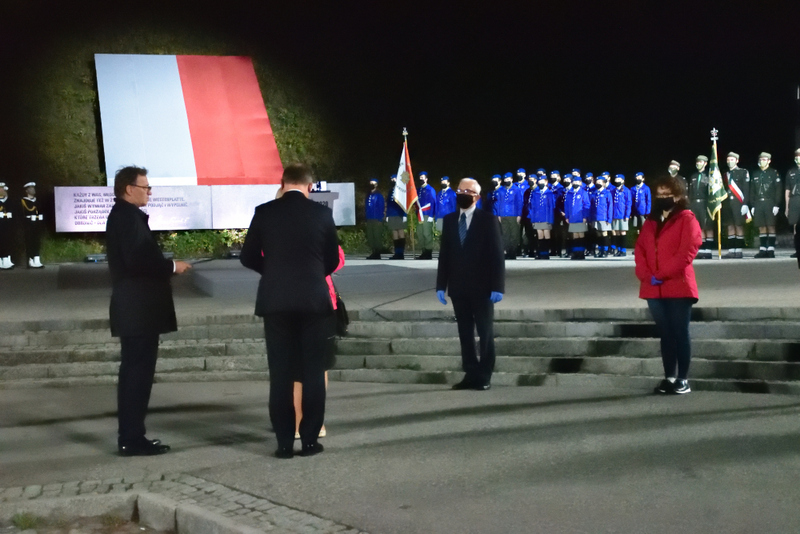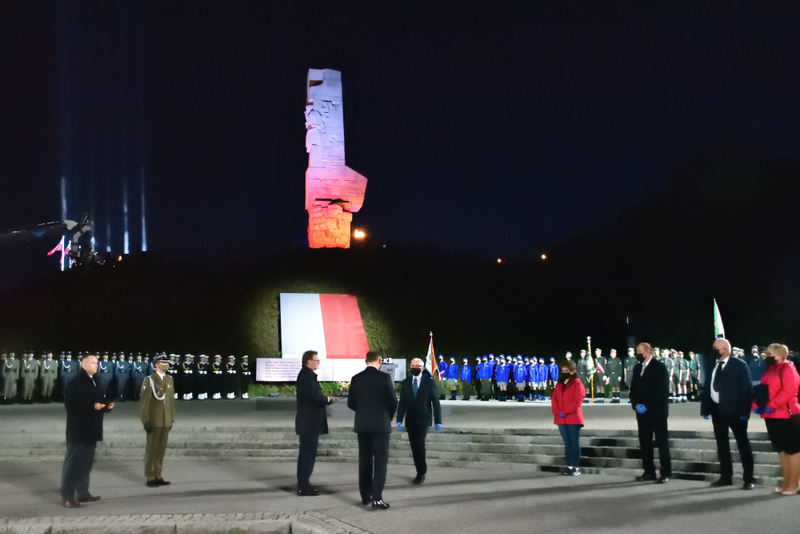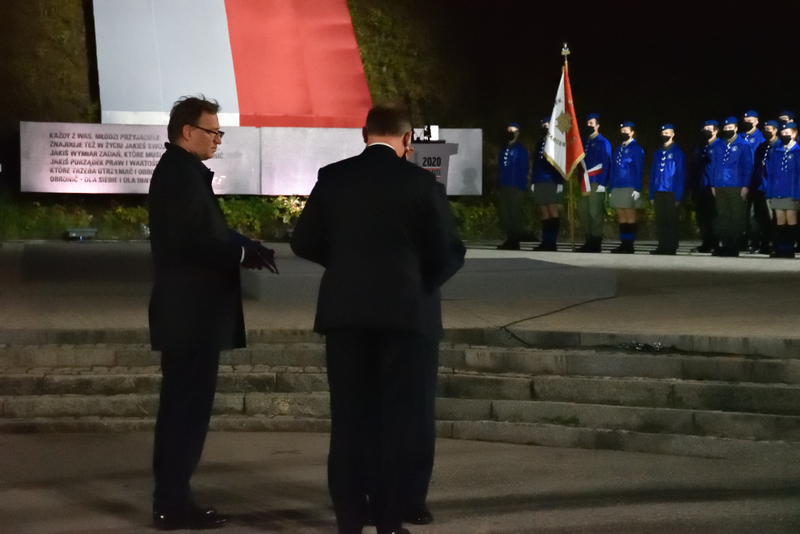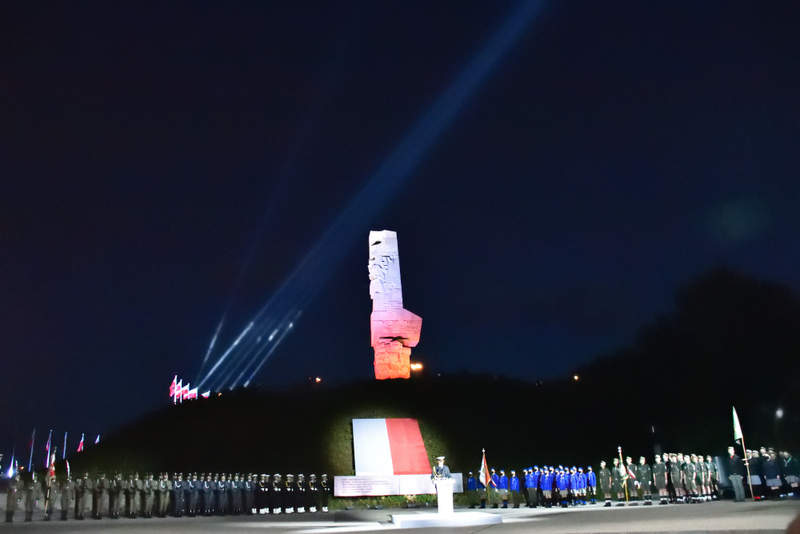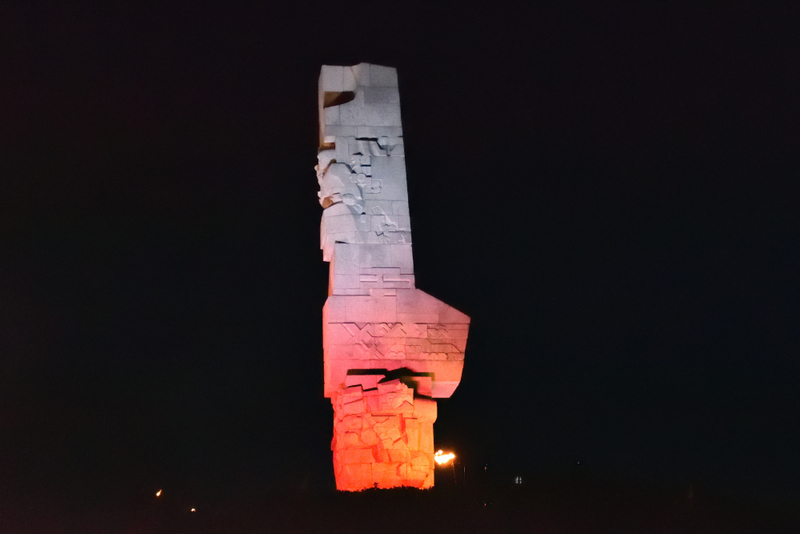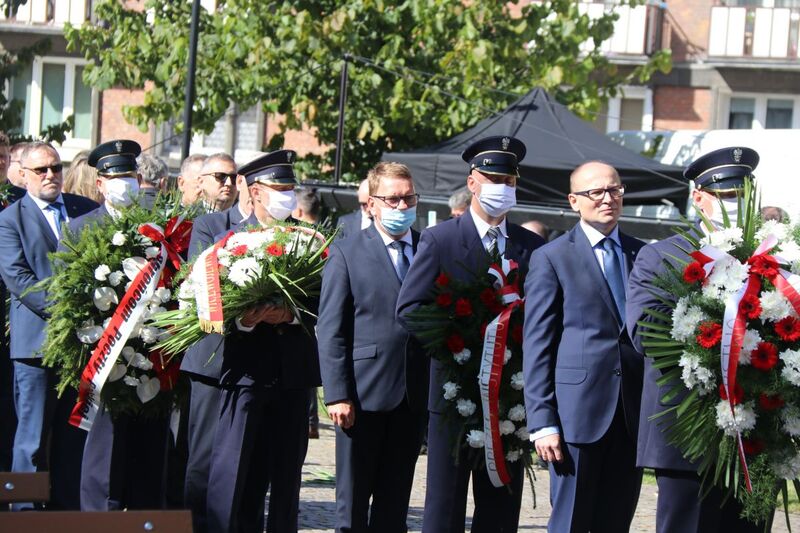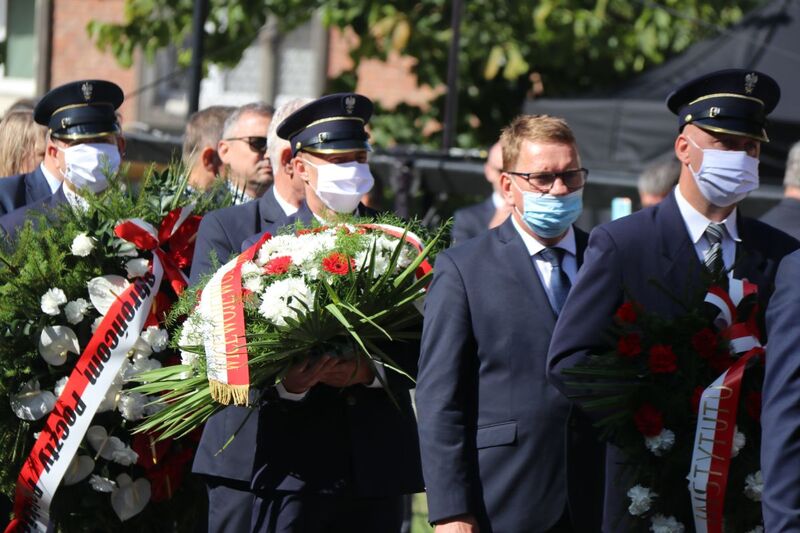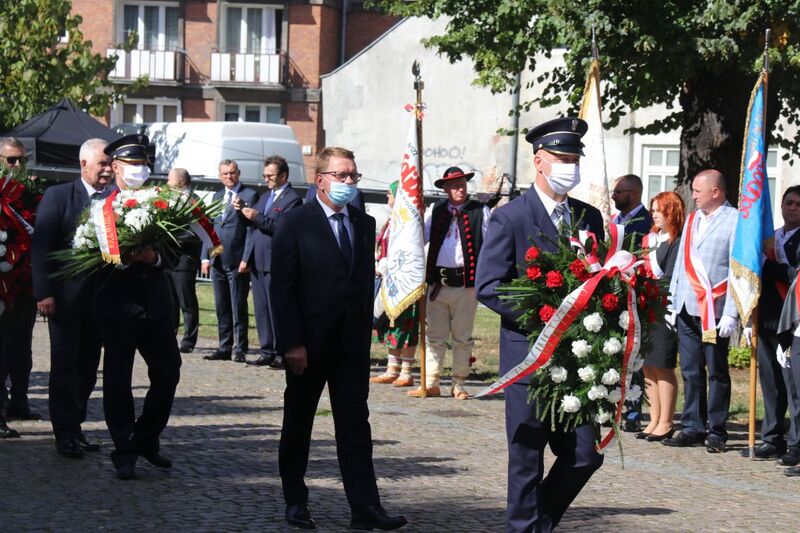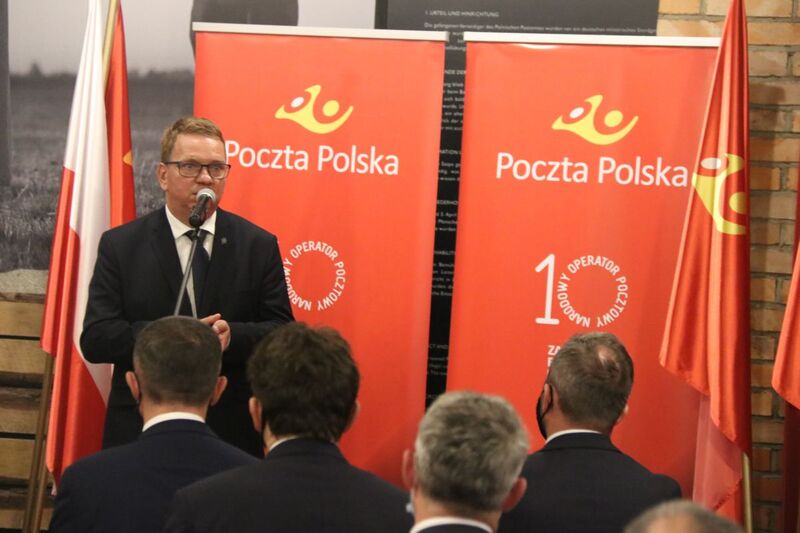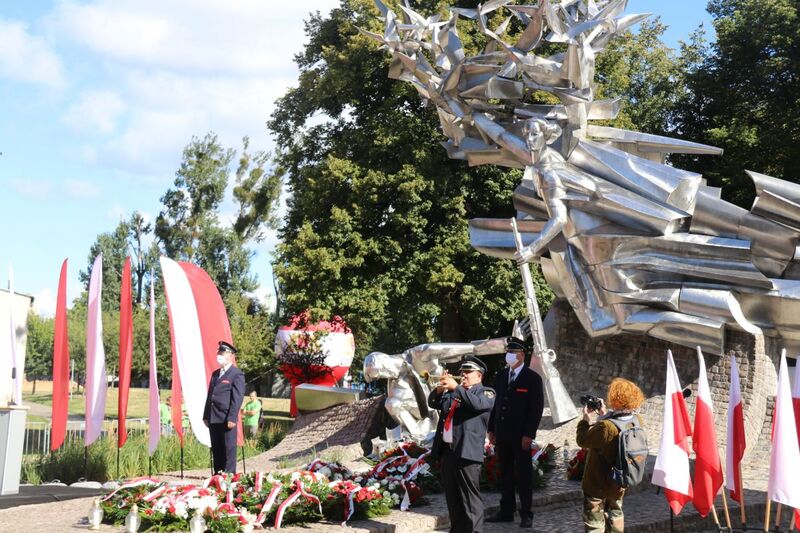Five defenders of Westerplatte have been identified! During the commemoration ceremony of the 81st anniversary of the outbreak of World War II on 1 September 2020 in Gdańsk, the President of the Republic of Poland Andrzej Duda , accompanied by the President of the Institute of National Remembrance Jarosław Szarek Ph.D. and the Director of the Museum of the Second World War, Karol Nawrocki Ph.D., handed identification notes to the families of the Fallen.
- 81 years ago, the attack of Nazi Germany on Poland marked the beginning of the Second World War. Polish soldiers were attacked here in Westerplatte. In Wieluń, German airmen dropped bombs on the sleeping city. Today we are honoring the memory of our predecessors - said President Andrzej Duda during the ceremony at Westerplatte.
- This is a very important moment, for I have the opportunity and the extraordinary honor of presenting the closest relatives of the heroes who died here over 80 years ago with certificates confirming their identity – emphasized President Duda.
The IPN delegation also participated in the ceremony of laying flowers at the Polish Army Soldiers' Cemetery in Westerplatte and in state ceremonies at the Monument of the Coast Defenders in Westerplatte.
The identified defenders of Westerplatte are:
On 1 September, on behalf of the President of the Institute of National Remembrance, Prof. Mirosław Golon, Director of the IPN’s Gdańsk Branch laid a wreath at the Monument to the Defenders of the Polish Post in Gdańsk. The representatives of the Institute participated in the celebrations in honor of the murdered postmen organized by the Polish Post.
– The fate of postal workers symbolizes the tragedy of all Poles during World War II – Prof. Golon emphasized in his speech.
The IPN’s delegation also took part in the solemn Holy Mass celebrated at the Obrońców Poczty Polskiej square.
The attack on the building of the Polish Post Office in the Free City of Gdańsk took place simultaneously with the start of the shelling of Westerplatte by the Schleswig-Holstein battleship. Despite the overwhelming forces of the enemy - the use of flamethrowers, explosives, cannons and artillery support - postal workers defended access to the building of the Polish Post Office for fourteen hours.
